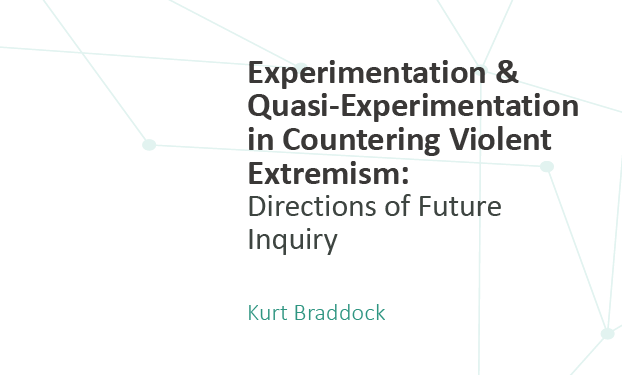Experimentation & Quasi-Experimentation in Countering Violent Extremism: Directions of Future Inquiry
Researching Violent Extremism Edited Volume Chapter

Abstract
Experiments and quasi-experiments have been staples of the social sciences for decades. Researchers in dozens of disciplines leverage these methodological approaches to empirical inquiry to investigate research questions of all types. Although many terrorism researchers are from disciplines that have used experimental approaches in the past, these approaches have only rarely been used to study terrorism-related phenomena. This is unfortunate, given the wide array of issues that would benefit from observation via an experimental and/or quasi-experimental lens. This chapter builds on previous calls for the use of experimentation in terrorism studies by identifying two topics for which experimentation and/or quasi-experimentation would serve well: 1) analysis of terrorist material and 2) evaluation of countering violent extremism (CVE) programs. In addition, the chapter discusses the optimal methodological approaches for studying these topics and how those approaches might manifest in practice. This section will highlight challenges that researchers and practitioners may encounter in implementing their own experimental approaches and ways to overcome them.
Suggested citation:
Braddock, Kurt. Experimentation & Quasi-Experimentation in Countering Violent Extremism: Directions of Future Inquiry. Washington, D.C.: RESOLVE Network, 2020. https://doi.org/10.37805/rve2020.1.